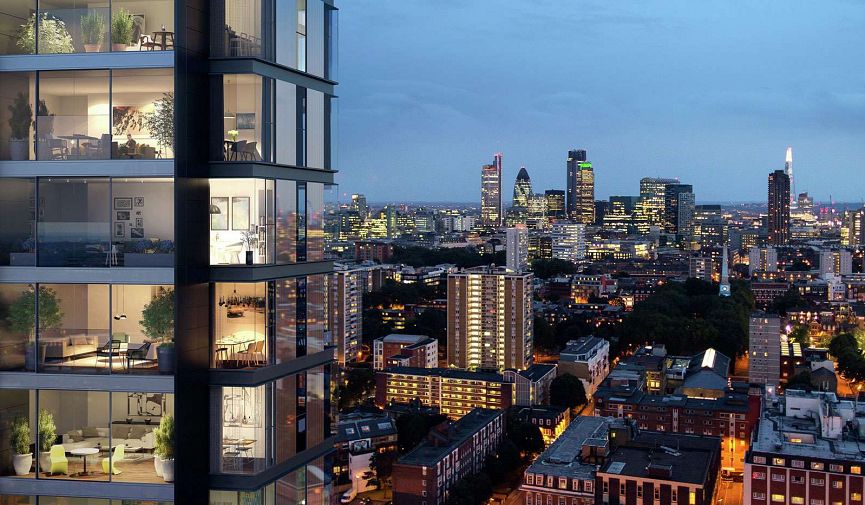There is still momentum behind the UK property sector with the latest house price index indicating a housing market crash is not on the cards.
While each individual monthly house price index cannot be relied upon to paint a wholly accurate picture of the market, they are often an indicator of the beginnings of new trends or a shift in sentiment.
The latest index released by Nationwide shows that, despite continuing expectations of some sort of drop-off, in fact appetite from buyers and transaction activity are holding prices much steadier than many predicted at this point. Contrary to a housing market crash, the figures show an ongoing upward trajectory.
On an annual basis, house prices increased in the year to August by 10%, up to £273,751, according to the building society. While this was a smaller year-on-year rise than July’s 10%, it is also typical for activity to wane slightly during the summer, which can affect pricing.
Month-on-month, Nationwide found that prices had risen by 0.8%, which is higher than the uptick seen between June and July of just 0.2%. In just two years, the statistics show that the average owner of UK property has made around £50,000.
Demand will stave off housing market crash
According to Myron Jobson, senior personal finance analyst at Interactive Investor, the long-standing story of demand far outweighing the number of properties on the market is keeping the sector buoyant – and there are no signs that this is about to change. The rental market also plays a part.
“Fast-rising rents are not offering any relief and could keep some buyers on the hunt for a home for longer than they would like,” he said.
“Even though the housing market is slowing, it is nowhere near a crash. Strong demand for homes far outstripping available housing inventory means the housing market remains a difficult one for wannabe homeowners and those looking to climb up the property ladder.”
Of course, rising interest rates over time could begin to impact people’s borrowing power and cause appetite to soften, but so far this has not had the impact that some had expected, and a housing market crash caused solely by this seems unlikely according to most.

Will rising bills have an effect?
During the summer months, of course, rising energy costs may not have a huge effect on many households, but the winter months will likely tell a different story – particularly as Ofgem is set to increase the energy price cap by 80% from 1 October.
With potential mortgage cost increases as well as general cost of living rises, many households will be feeling the squeeze and this is likely to impact how much people are able to spend on buying property. However, it could also affect property buying trends in other ways, as Nationwide reveals in its report.
While an overall housing market crash isn’t being forecast, certain properties could begin to become much less desirable, while others will be highly sought after, and this could all come down to EPCs (energy performance certificates).
Nationwide found that properties in the A-C top-rated EPC bracket currently pay an average £1,700 on bills per year (based on the April 2022 price cap). But those in the bottom tier F-G properties are paying more than twice as much, at around £3,900 per year.
D-rated properties are the most common in the UK, and inhabitants could see bills increase by £1,250 annually, after the government’s £400 discount. Therefore, could the market become more polarised, with a housing market crash on properties with the worst EPCs?
Nationwide’s report says: “With household budgets coming under substantial pressure, the government is likely to increase support. But, as well as addressing the rising cost of energy bills, improving the energy efficiency of the housing stock could play a crucial role.
“Incentivising improvement measures, such as loft and cavity wall insulation and solar PV installations, could help limit bill increases and assist the UK towards its carbon emissions targets.”